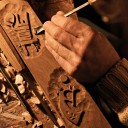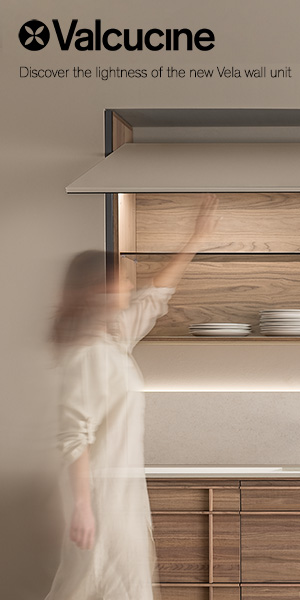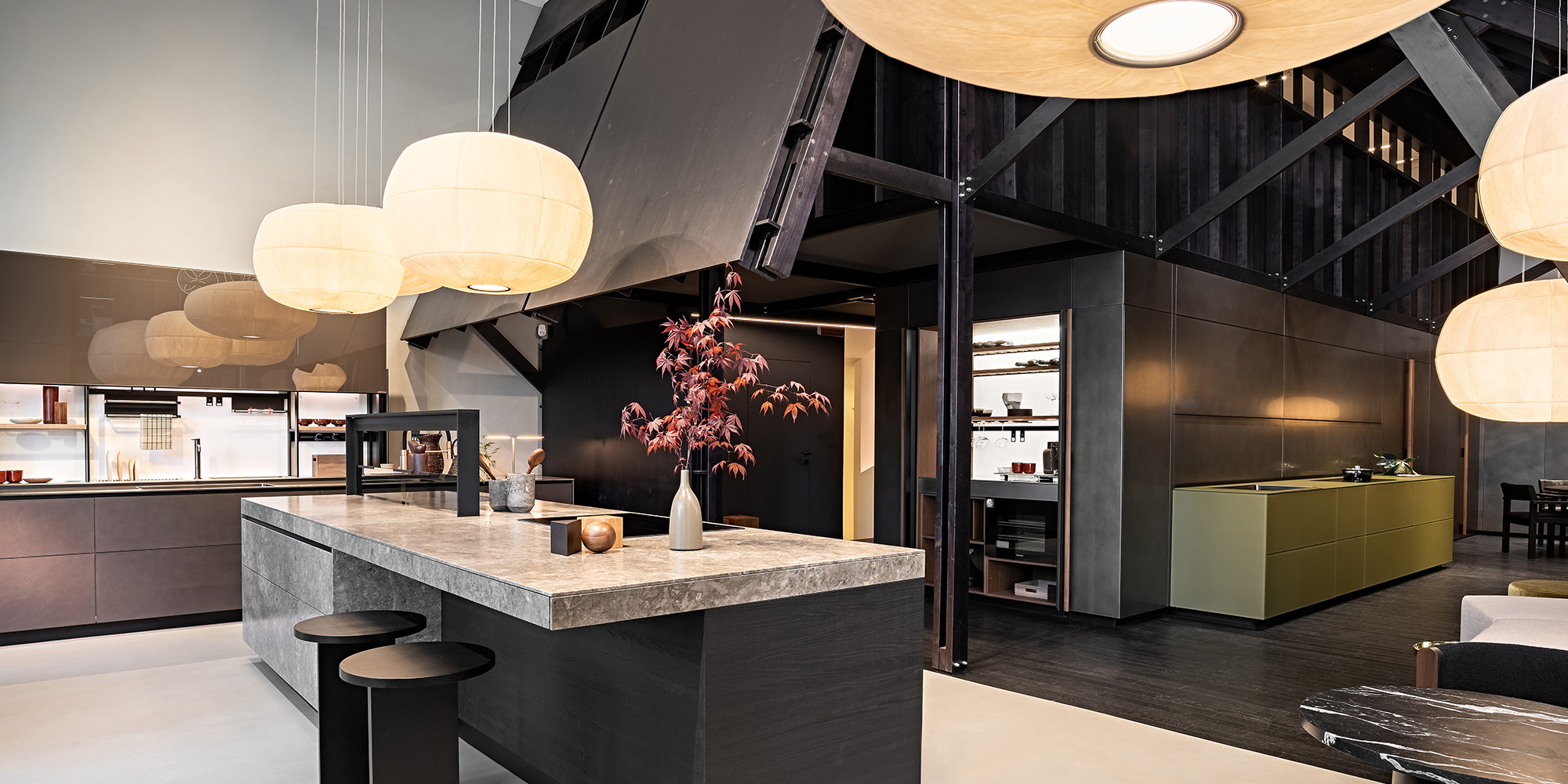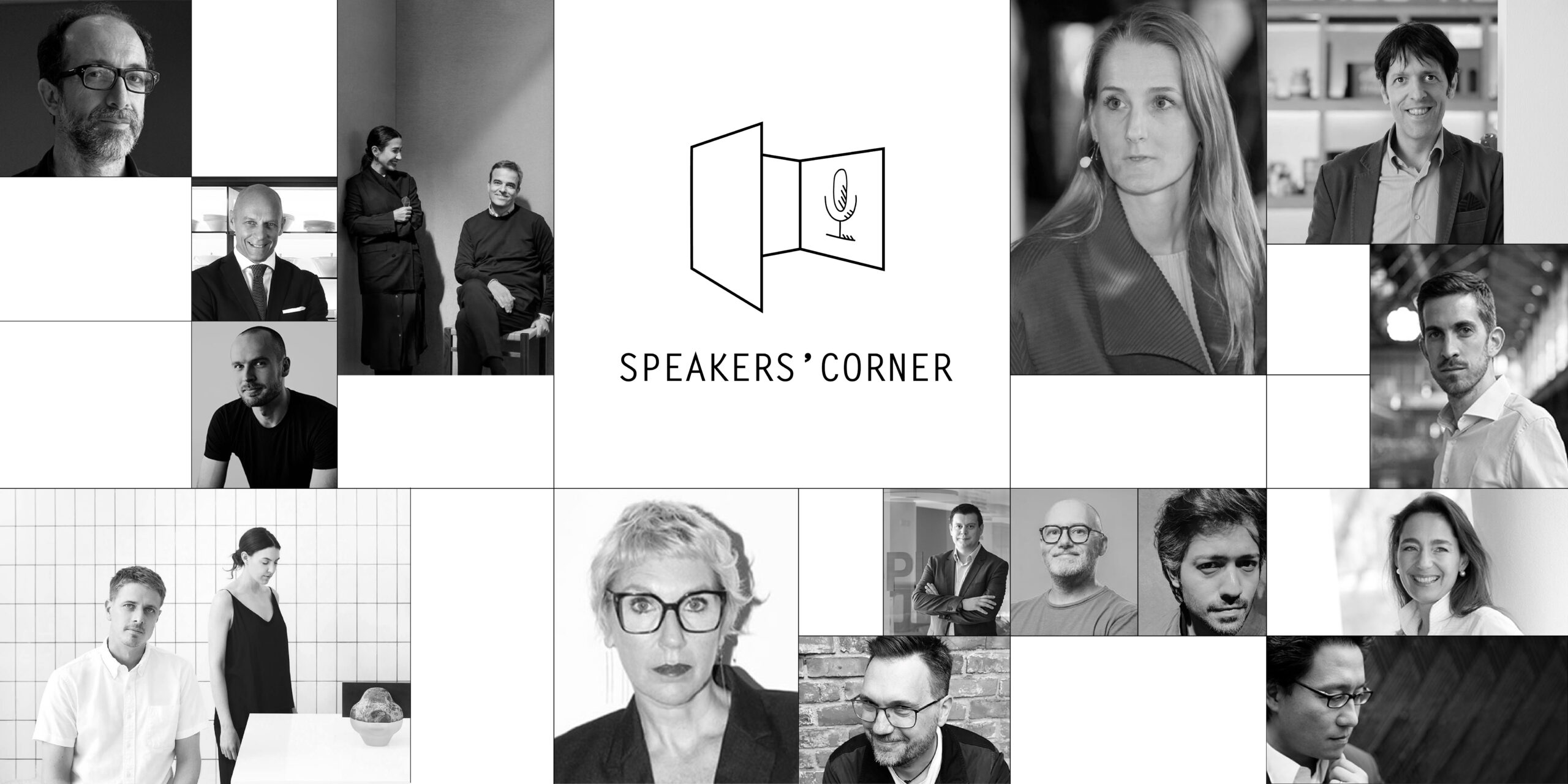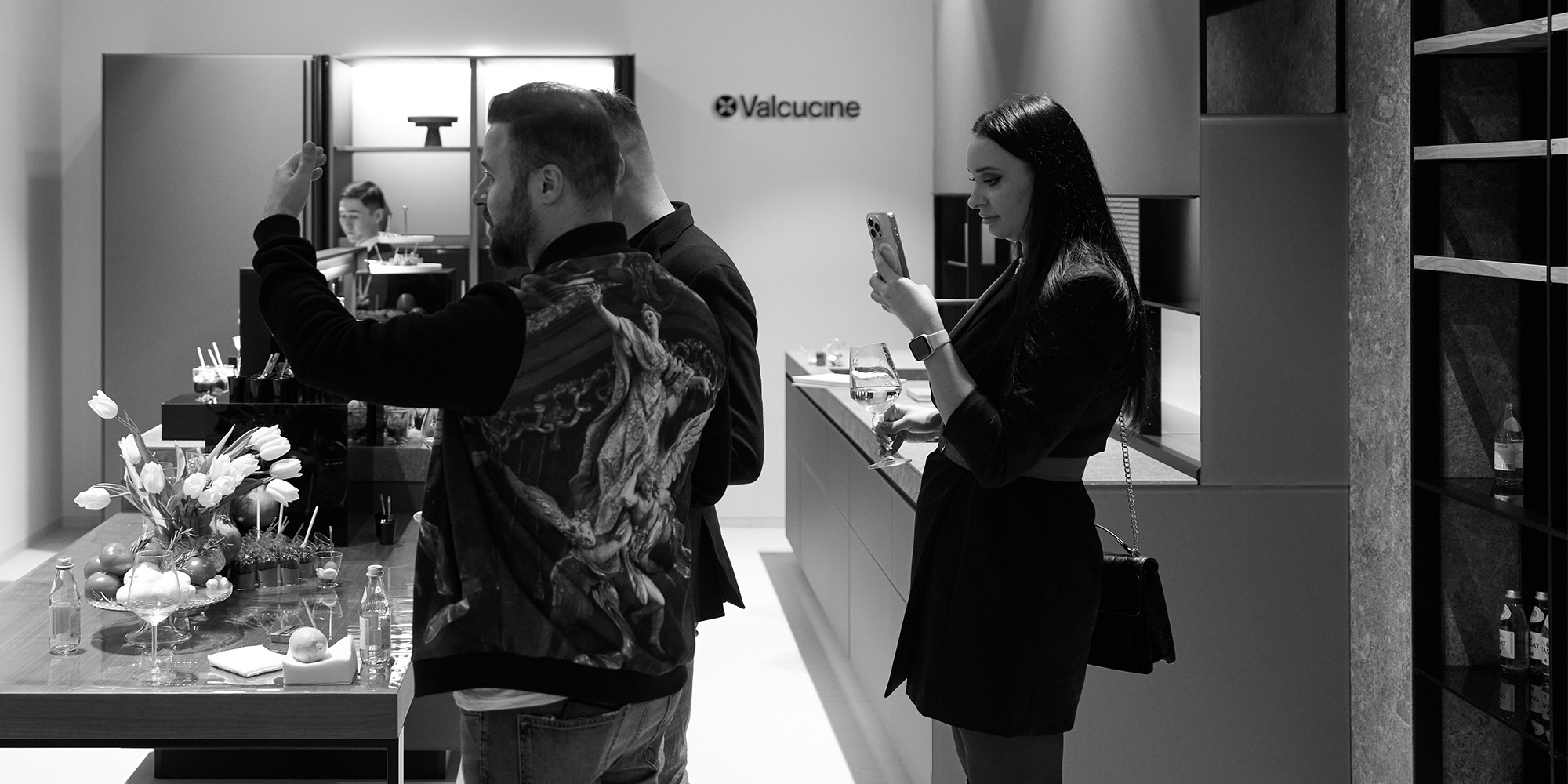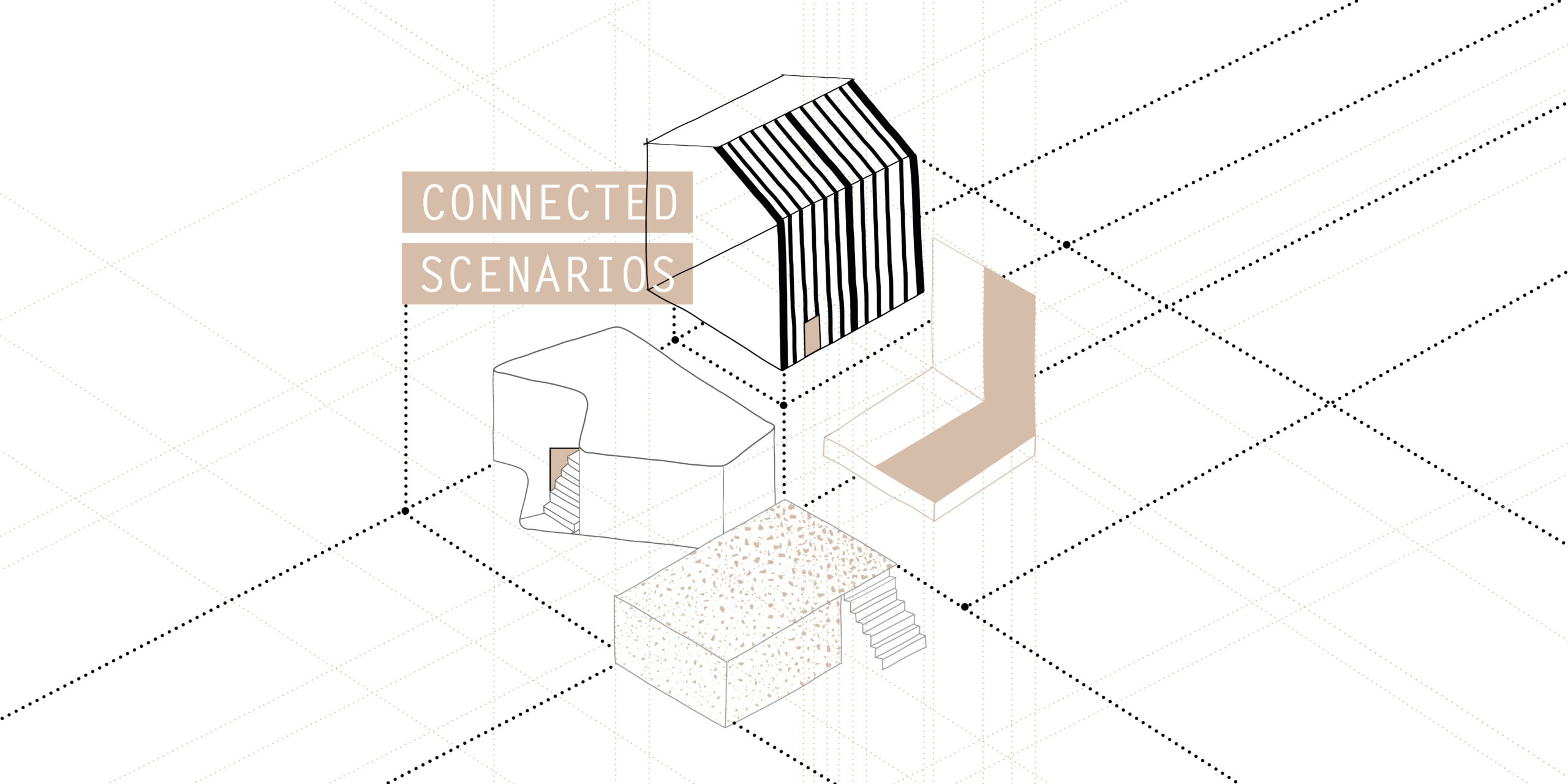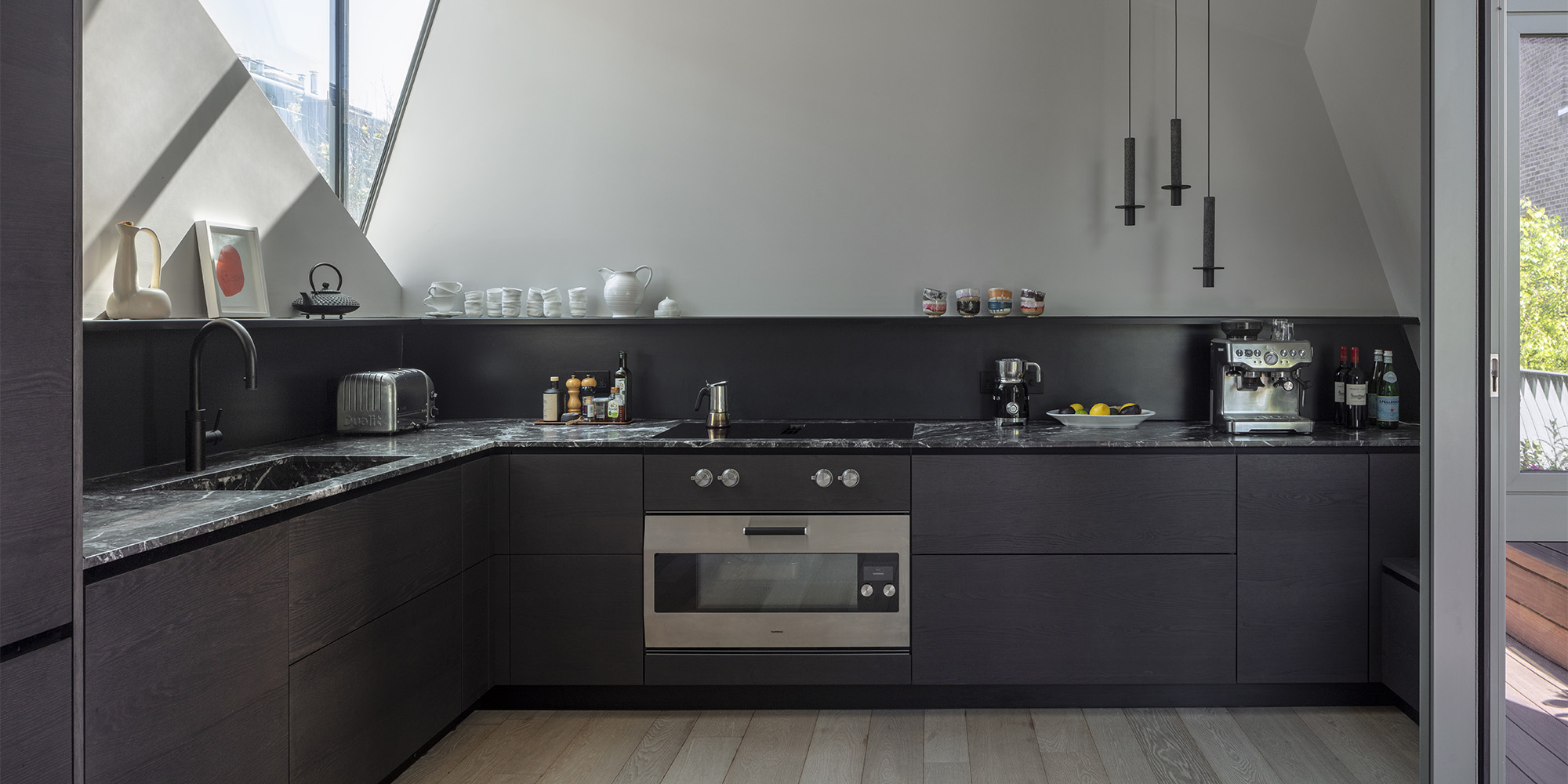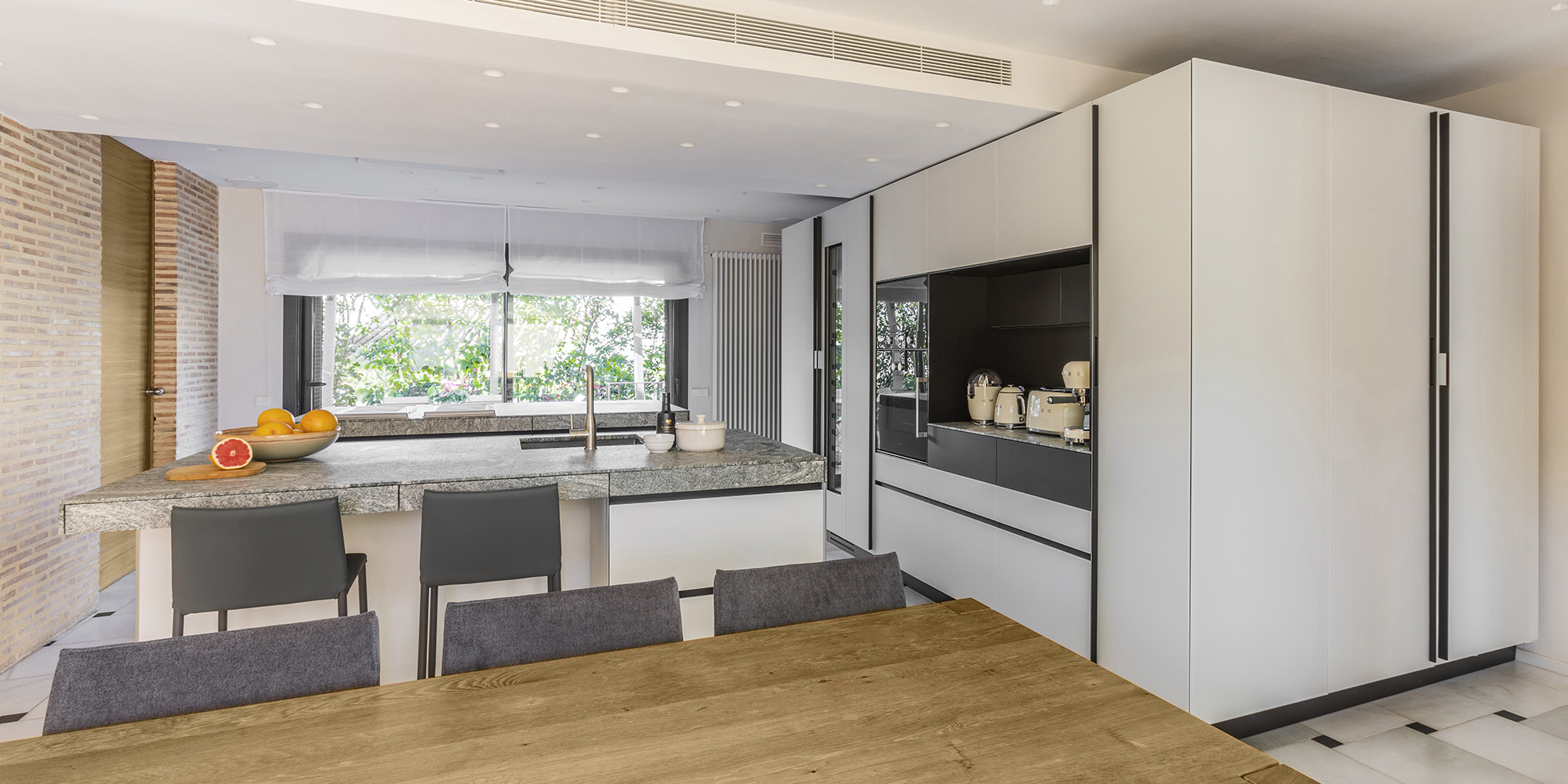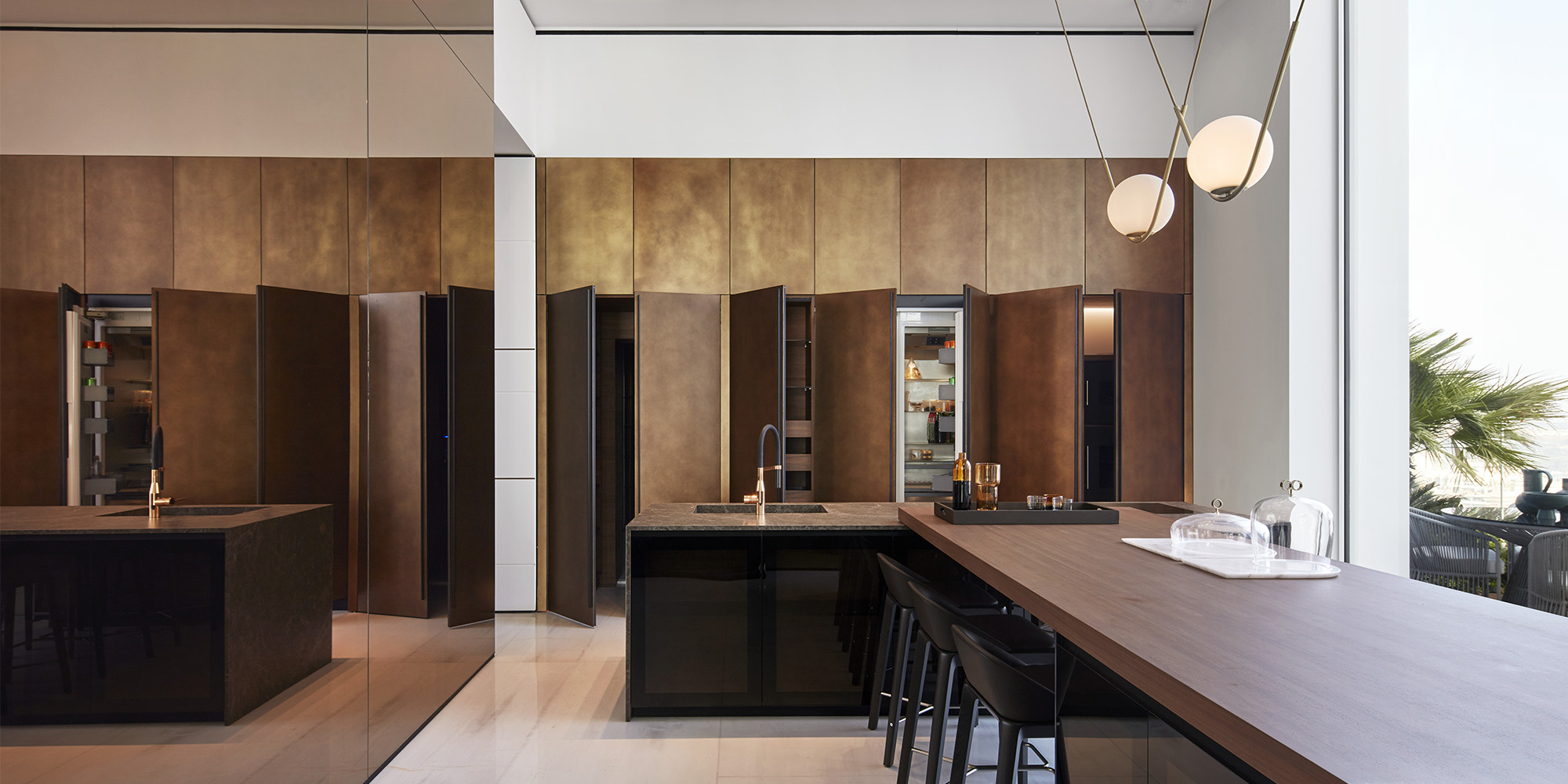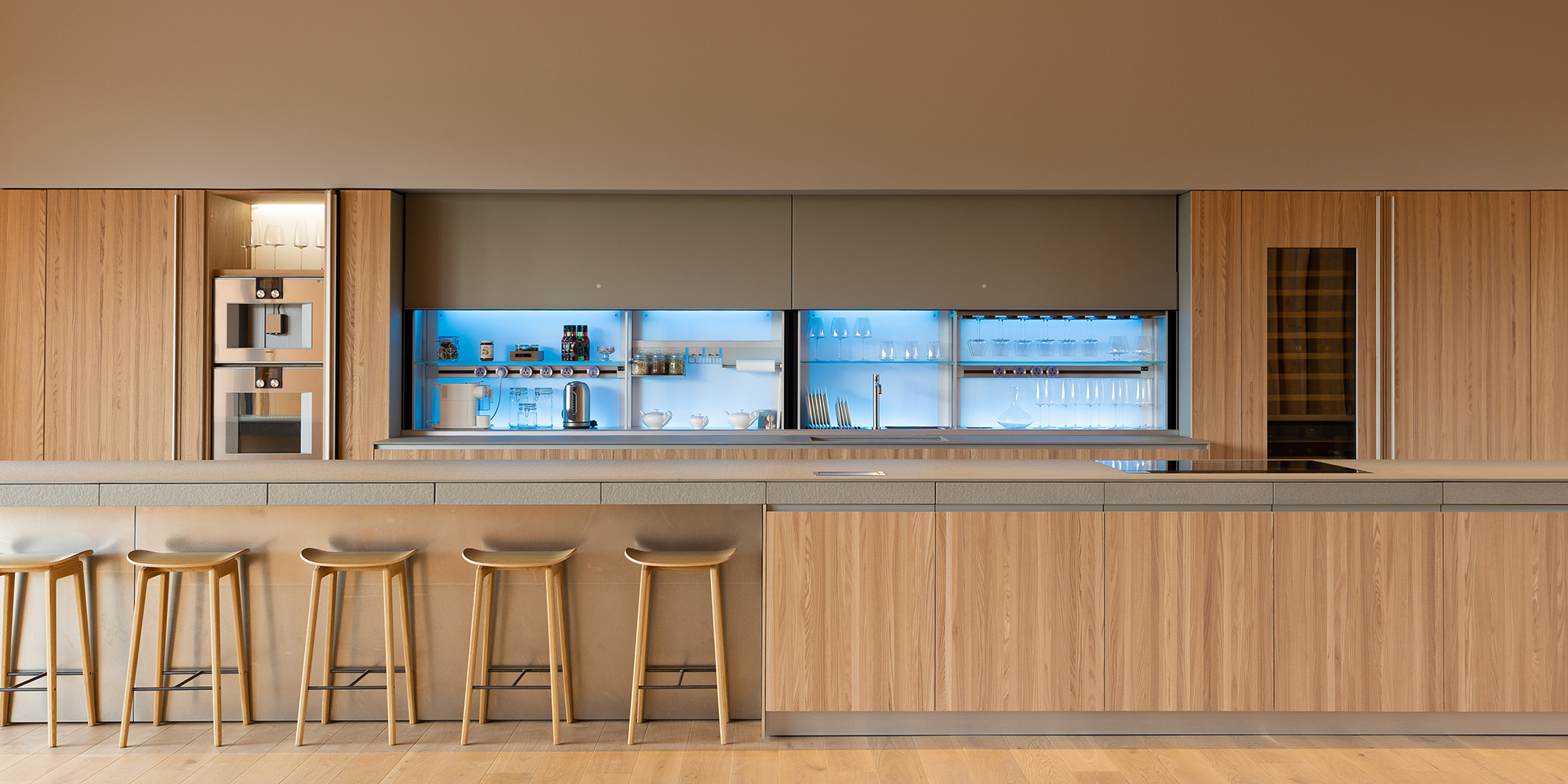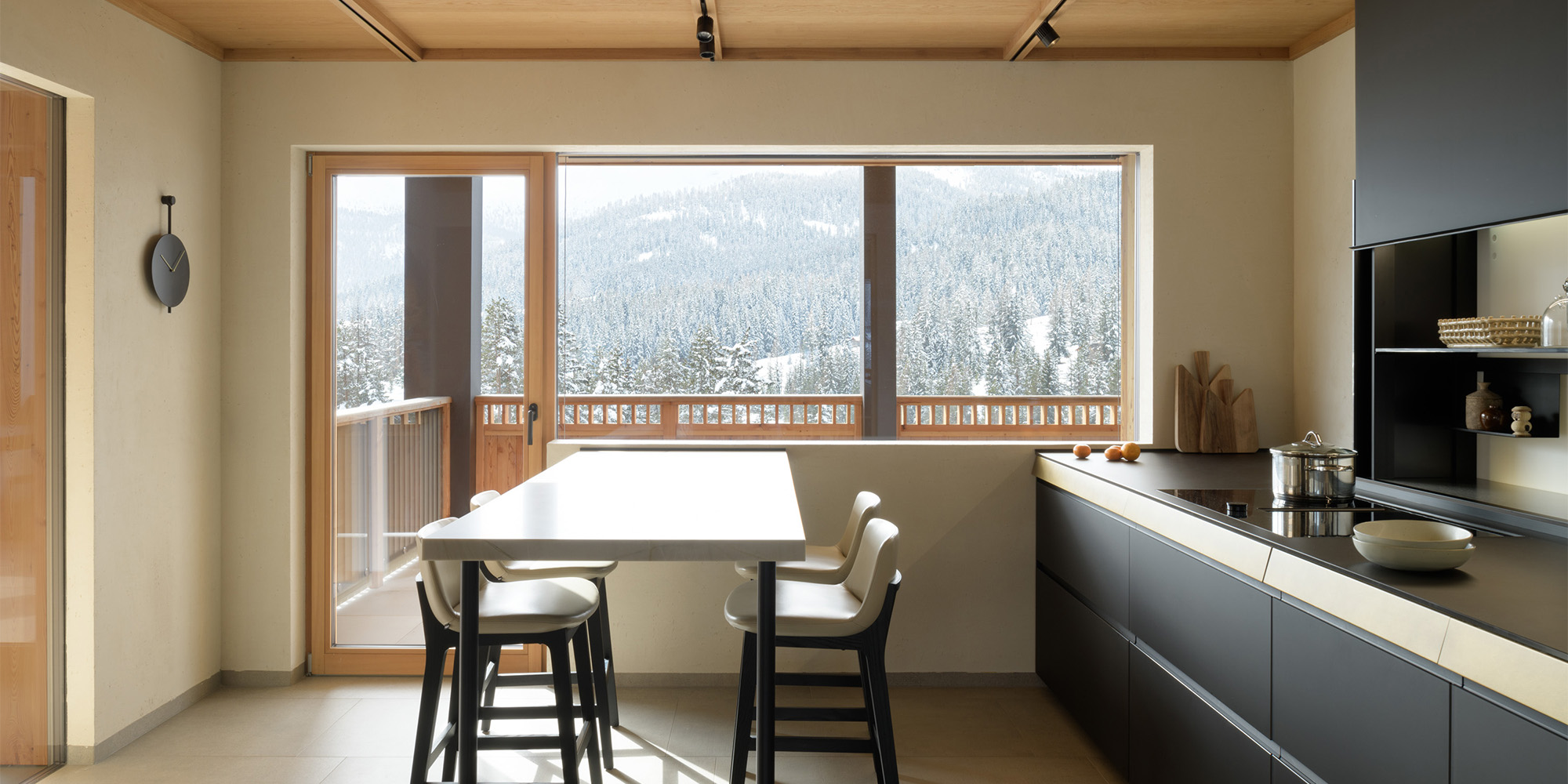Industrial Design: embracing the soul of craftsmanship
After the boom of mass production, the future of Made in Italy products now goes through the rediscovery of the traditions and techniques of bygone days. If in the past the word designer used to refer to the “artist draughtsman” or to the “object industrializer” and the artisan was no more than a manual worker, the two categories are now starting to communicate with each other.
The new alliance between industry and handicrafts has resulted in the Valcucine designer, Gabriele Centazzo, enlivening the reintroduction of SineTempore, the new traditional-style kitchen, with decors of bygone days.
SineTempore, a kitchen conceived to express the values of tradition through the recovery of various ancient handicraft techniques, stems precisely from this emerging vision: pyrography, inlays, carvings and mosaics decorate the wooden surfaces, while bushhammering is used for the surfaces of the worktop back panels.
An important element for the sustainability of an object is its duration. The more durable an object is, the more sustainable it can be considered to be. Handicraft work is functional to aesthetic durability because customisation and manual work create a bond towards the object that make its beauty appreciated for longer. This results in a longer usable life of the object, i.e. a longer lifecycle, reducing its impact on the environment and increasing its environmental friendliness.
The doors have a “Tattile” elm finish while the surfaces of the worktops are in marble or porphyry. All the carcasses and shelving units are in solid elm with comb or tenon joints. Tenon joints are the type that fit into their empty equivalent space. The traditional copper cooker hood with a trapezoidal body or the more modern P20 hood in steel can be used on this kitchen.
Bushhammering is a surface treatment for stone elements that are to be left in view; it creates a slightly corrugated surface giving it an appearance that is similar to the natural material. It can be used on almost all types of stone materials.
Carving is an artistic technique by which recessed or raised decorations are made on wooden surfaces: it is distinguished from sculpturing because of its highly decorative purpose.
Inlay or wood inlay is a type of decoration that is achieved by putting together minute pieces of wood or other materials in different colours.
Pyrography (from the ancient Greek: “writing with fire”) is an engraving technique using a source of heat on wood, leather, cork or other surfaces that was practised in the past utilising pointed, red hot, iron tools.
The mosaic is a composition obtained by using fragments of materials (tesserae) of different types and colours (stone, glass, shells) processed by hand.



